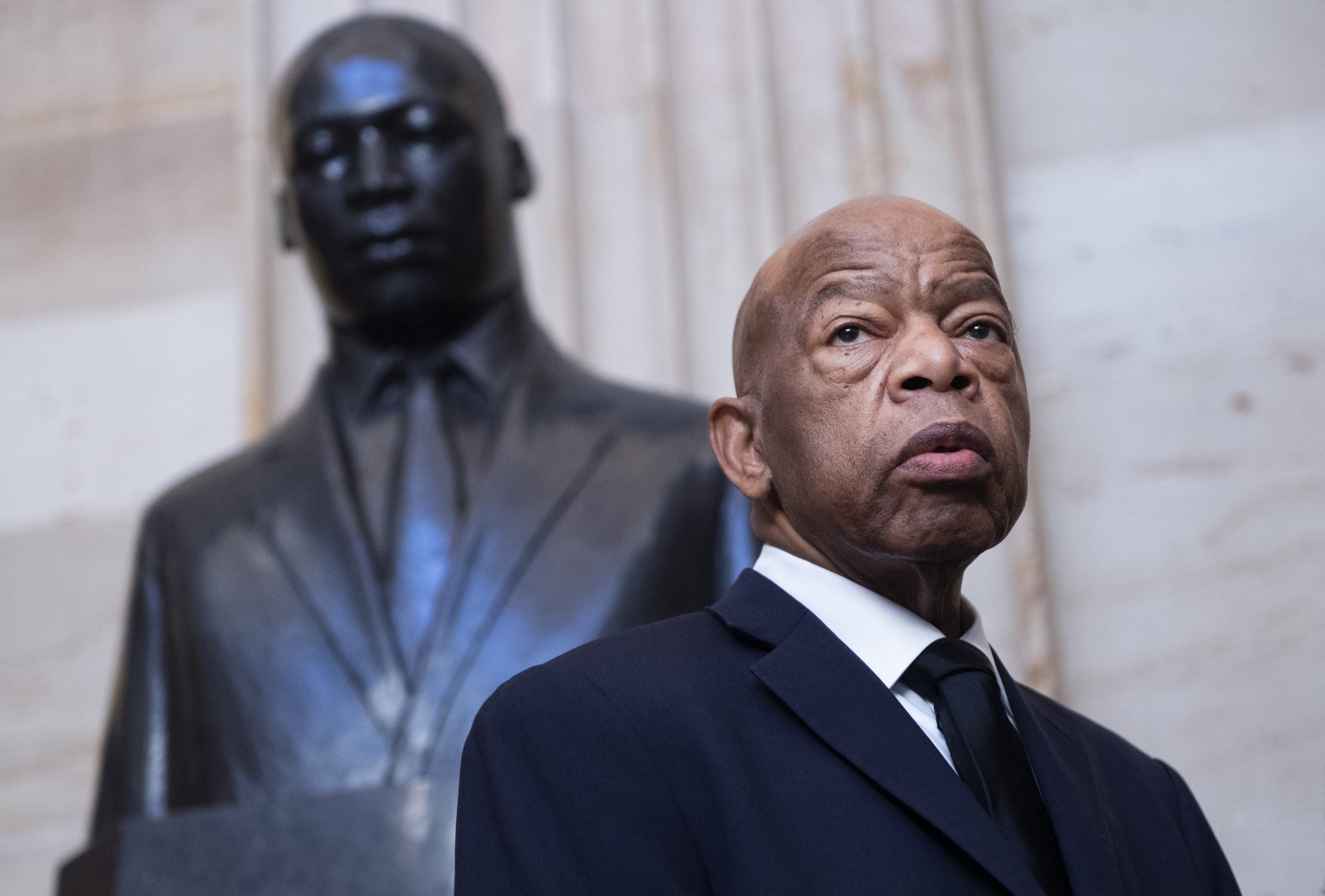
As we watched Congressman John Lewis’ casket be carried across the very bridge that he marched over and was beaten and tear-gassed on for our right to vote, it served as a somber reminder of the enormous sacrifice he and other heroes like him have made to ensure every American enjoys the full rights of citizenship. And so now the question is how will we honor him by standing on his shoulders and continuing his legacy?
For as tough as this year has been, it has also been the catalyst for a much-needed awakening. This is a pivotal moment for our country; a surging stress test of our political systems and institutions, as well as the people we have elected to serve us. More than ever, it is critical that we are able to let our elected officials know how we are feeling, and what we need them to do to lead our country forward. It is our voice that will decide the future, and it is our duty and responsibility to make our voices heard loudly and clearly.
As Congressman Lewis’ journey shows, the right to vote has been hard-fought. But, as proven by recent primary elections in Wisconsin, Georgia, and Kentucky—not to mention the disastrously poor general election turnout in 2016—equal access and rights to vote are a lofty ideal rather than a commonplace practice. As many disenfranchised and marginalized voters can attest, we still have a long way to go to ensure that all eligible Americans have the opportunity to exercise their right to vote. To achieve a truly free and fair democracy and to eliminate voter suppression in all its forms, all eligible Americans must have safe, accessible, and fair ways to cast their ballots.
And that doesn’t just mean paying attention every four years for a presidential race — it’s so much deeper than that. Government affects our daily lives, informing the judicial cases that end as both local, state and national laws, the allocation of resources that affect our lives and livelihood, the curriculum and quality of our schools, the makeup and scope and practices of our police departments, the quality of the water we drink, our roads, the parks where our children play, and so much more. It’s on us to make sure that officials from the local school board to the President of the United States represent the diverse communities they are elected to serve so that they can truly understand and respond to the needs of their communities.
I encourage you to learn more about John Lewis’ inspirational life—as told in the recently released documentary John Lewis: Good Trouble. The fight for equitable voting access may seem like settled history, but some of the fights he faced decades ago are not codified into laws or practices today. We’ve seen countless reports of people facing problems registering to vote, of voter purges and voter ID laws, poll closures, and disproportionately long lines. We have also seen malfunctioning voting equipment and disenfranchisement of justice-involved individuals, and of course gerrymandering. These are all weapons in the arsenal used to silence voters, often voters of color, and it is critical that we carry on with Congressman Lewis’ fight to help America live up to her promise of equality.
To honor his legacy, we must truly embrace his call to make “good trouble,” and continue his work to “bend the long arc of the moral universe towards justice.” As President Obama said in his eulogy speech for Congressman Lewis, “Let’s honor him by revitalizing the law for which he was willing to die. And by the way, naming it the John Lewis Voting Rights Act, that is a fine tribute. But John wouldn’t want us to stop there, trying to get back to where we already were”
As Board Chair of When We All Vote, a national, nonpartisan, non-profit that brings together citizens, institutions, brands, and organizations to increase participation in every election, I believe there are immediate steps we can take. Expanding vote-by-mail, restoring the John Lewis Voting Rights Act, and investing in poll workers and election equipment are some of these essential priorities, but at its core, the culture around voting must also change to be more inclusive. Especially in this new abnormal, voters in the greatest democracy on earth should not be saddled with the false choice between voting or protecting their family’s health.
The coronavirus pandemic and the recent spotlight on the long painful history of an epidemic of killings of Black Americans by members of law enforcement are painful lessons in how important it is to elect responsible, accountable leaders. In this unprecedented moment of national awakening, we have an opportunity to change the culture around voting so that people are not just educated and informed voters up and down the ballot, but also given the equal access to safely cast their vote and make their voice heard.
That’s why we at When We All Vote are proud to partner with the Good Trouble Campaign, which uses the documentary as a tool to educate about voter suppression, and encourages audiences to participate in civic engagement efforts that empower disenfranchised communities to fully and equitably participate in our democracy. It is a prime example of how we can increase civic engagement, bringing together people, organizations, and brands to influence the culture around voting for good.
For all the good trouble Congressman Lewis and his contemporaries got into to lead us to the progress we have made today, we owe it to them—we owe it to ourselves, and our children—to make some good trouble of our own. Historical headwinds may be strong, but our will to make our voices heard is stronger. As Lewis said: “Your vote matters. If it didn’t, why would some people keep trying to take it away?”
